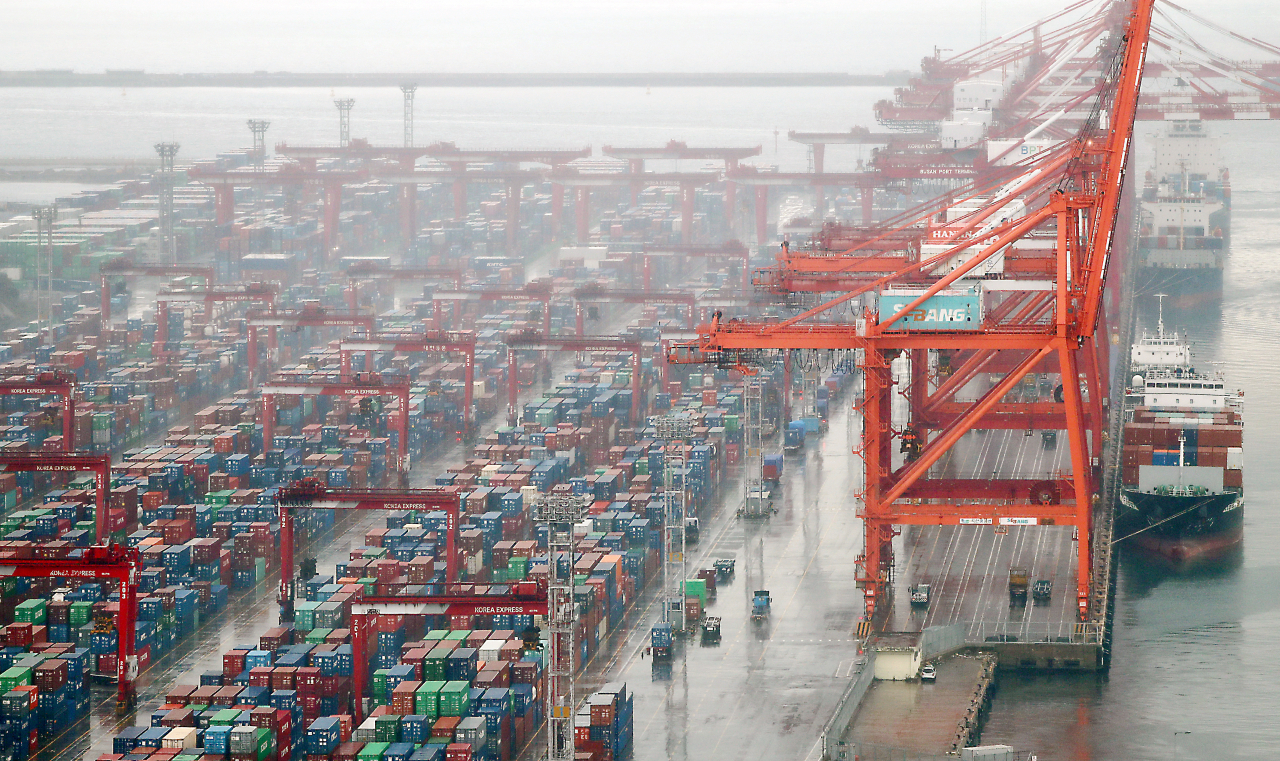South Korea posts current account deficit for 2nd straight month
By Song Seung-hyunPublished : April 7, 2023 - 15:35

South Korea posted a current account deficit for the second consecutive month in February, central bank data showed Friday, as the country's raw material imports grew while outbound shipments continued to slump.
The current account balance in February saw a deficit of $520 million, after logging the biggest-ever deficit of $4.21 trillion in January.
When looking into the data in more detail, the trade balance for goods posted a deficit of $1.3 billion, marking a $5.65 billion decrease compared to the previous year.
Although the merchandise trade balance has stayed in red for the fifth month in a row, the size of the deficit decreased in February by approximately $6 billion compared to in January, which had the largest deficit since the statistics started to be compiled.
Exports decreased by 6.3 percent in February on-year to $50.52 billion as well.
Exports in Korea experienced an on-year drop in September of last year for the first time in 23 years, and since then, exports have been on a downward trend for six consecutive months.
The sectors that have largely affected this trend are semiconductors (-41.5 percent), chemical industrial products (-9.8 percent) and steel products (-9.2 percent).
By region, exports to Southeast Asia dropped the most by 25 percent, followed by China (-24.3 percent), and Japan (-5.4 percent).
On the other hand, imports increased by 4.6 percent to $51.82 billion on-year.
Raw material imports increased by 7.2 percent on-year. The export growth rate for gas and chemical industrial products -- among the raw materials -- reached 72.5 percent and 10 percent, respectively.
The situation is not much different for the service account balance.
The latter recorded a deficit of $2.03 billion, marking a $212 million decrease compared to the surplus of $90 million recorded in February last year.
The drop was partially due to the transportation account balance, which had a surplus of $1.42 billion a year ago, recording a deficit of $220 million.
Since more people started traveling in February as COVID-19 regulations eased, the travel account deficit more than doubled from $430 million a year ago to $1.01 billion.







![[KH Explains] No more 'Michael' at Kakao Games](http://res.heraldm.com/phpwas/restmb_idxmake.php?idx=644&simg=/content/image/2024/04/28/20240428050183_0.jpg&u=20240428180321)



![[Weekender] How DDP emerged as an icon of Seoul](http://res.heraldm.com/phpwas/restmb_idxmake.php?idx=644&simg=/content/image/2024/04/25/20240425050915_0.jpg&u=)






![[Herald Interview] Mistakes turn into blessings in street performance, director says](http://res.heraldm.com/phpwas/restmb_idxmake.php?idx=652&simg=/content/image/2024/04/28/20240428050150_0.jpg&u=20240428174656)
